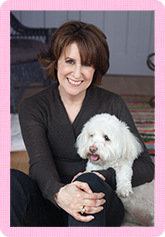Published in the New York Times
I thought it was a romantic comedy. I was wrong about the comedy.
 I thought I’d fallen into my own romantic comedy.
I thought I’d fallen into my own romantic comedy.
I write them for a living. My sister Nora and I wrote “You’ve Got Mail,” among others. How people fall in love is my specialty.
Here is where it begins.
Last August I wrote an essay for this newspaper about trying to disconnect my late husband’s phone and ending up in Verizon hell. In October, I got an email from a man who read the piece. A man Nora had fixed me up with when I was 18 years old, a summer intern she’d met at Newsweek. We’d had three dates, he wrote.
Now we were 72 years old. We are talking 54 years ago. “We went to a Columbia football game. There were snow flurries,” Peter told me when I confessed in my return email to having absolutely no memory of our dates.
He was now a psychiatrist, a Jungian analyst, living in the Bay Area.
There were confluences. He’d had similar problems — with AT&T — trying to disconnect his wife’s line after she died. The last trip they took together had been to Syracuse, Sicily. My most recent novel, “Siracusa,” was set there. Peter loved it, he told me. He knew the way to a writer’s heart.
“Do you want to talk further?” he wrote. “Clearly I do.”
I’d have sworn that I had no interest in meeting a man or, frankly, taking off my clothes in front of one. I was content. I had great friends. I’d had a wonderful marriage.
And yet when Peter opened his arms, I leapt into them.
Of course, first I Googled.
After mistaking several other men for him, I learned that he had written two books on sexual exploitation. He had testified on behalf of abused women in court. An activist on behalf of women? Is this a feminist prank? He’d recently hiked the Grand Canyon. He sent a photo of himself in a canoe. He was great looking.
After consulting my friend Jessie, who has excellent judgment and who approved of his email, I wrote back. Something charming, I hoped. Yet I was careful to mention that I never hike except across Greenwich Village for a pastry. Peter did sound seriously interesting, but there was no way I was going near the Grand Canyon.
Within days we were emailing several times a day. I remember thinking, there is no point in being anything other than who I am, so I was honest about my life, my loss, the complications of survival, and he responded in kind.
There we were, like Joe Fox and Kathleen Kelly in “You’ve Got Mail,” emailing our hearts. Or was it like “Sleepless in Seattle,” since we were on opposite coasts?
After about two weeks, he wrote the inevitable: “Delia, I think we should talk on the phone.”
Soon we were logging hours late at night. Not FaceTime or Skype, simply phone calls — voices connecting the way I did when I was young. He drove to Nevada to canvass for Hillary Clinton, and we talked the four hours there and the four hours it took him to drive back. I couldn’t think or write or sleep. I realized, I’m falling in love. I am 72 years old, how is this possible? All this before Peter said, “Delia, I think we should meet.”
The next weekend he flew to New York.
The day of our date, I had an excellent blow-dry. I spent way too much time considering what to wear. I was tongue-tied at dinner. I believe I asked him his favorite color. My brain was jumbled by his presence, by the ghost of my husband who would only want me to be happy, but still.
When we left the restaurant, Peter kissed me. On the corner of Bowery and Houston, let it be marked forever.
The next morning I freaked out. We were supposed to meet in Washington Square Park. I couldn’t go. I called Jessie. “He has a backpack,” I told her.
“Every man in Northern California has a backpack,” she said, “get over to the park.”
Peter and I sat on a bench and talked for hours. I was scared. At our age death is sitting there, right in front of you. You can reach out and touch it. And I remember saying, the way people say things they mean but don’t: “No one should have to go through twice what we both went through. If I get sick, I give you total permission to leave me.”
And Peter said, “I could never do that.”
This is not a romantic comedy. It’s not a comedy at all.
In the full disclosure necessary at our age, I told Peter that I had abnormal cells in my bone marrow, discovered in a biopsy seven years earlier. But every six months I would visit Dr. Gail Roboz, director of the leukemia program at Weill Cornell Medicine, and she would give me a blood test and tell me I was fine. Peter was not put off.
Within weeks of our first date, we were taking long trips together, including one to the edge of the Grand Canyon. And then I went in for my next blood test, on March 9, and found out that I had leukemia.
It was A.M.L., acute myeloid leukemia, an aggressive form. I would start chemotherapy in the hospital the next week, Dr. Roboz said, on CPX-351, a drug in clinical trials, not yet approved by the Food and Drug Administration.
Leukemia. A.M.L. My sister had died of this disease.
But it wasn’t the same disease, Dr. Roboz told me. Abnormal chromosomes and mutations make A.M.L. behave very differently in different patients. My version was not like my sister’s, and was, Dr. Roboz believed, a good candidate for CPX-351. This is why I could get the drug, through Weill Cornell’s compassionate-access program.
I felt grateful for that, but I wished so much that this drug or something suited to Nora had existed when she was sick. I was lonely for her, more than ever.
Like my sister, I started lying. I told lots of lies to people I love. To people I work with. About why the screenplay wasn’t in, why I had to miss appointments. I’m a terrible liar. I said whatever came into my head. I even borrowed a friend’s eye disease. All I could think was, if I tell one person and they tell another, my news would be public, published as: “Her sister died, she’s dying, too.”
I had to protect my hope.
Peter flew in the day after I found out. He was sitting at the breakfast table, I was making us French toast, and he said, “We should get married.” He stood up. “Will you marry me?”
“Yes.”
This wasn’t a practical decision. We both understood that the illness had given us an even clearer recognition of our love. On Monday we got a marriage license and bought a ring. On Tuesday I checked into the hospital.
We want to marry, we told Dr. Roboz, who turned out to be able to arrange that, too. We read our vows that Peter wrote all about miracles, and the Rev. Cheryl Fox, the hospital chaplain, pronounced us husband and wife in the dining room on the hospital’s 14th floor. I was one CPX-351 treatment in, two more to go.
Peter took a leave from his practice and slept in my hospital room. There was not one moment when he wasn’t positive. Not one. A long hospital stay is like being in a tunnel, a blur of people taking your vitals, meals arriving that you don’t want to eat, forcing yourself to walk the corridors to keep up your strength. Fear and hope battling for your heart and mind. Every night, when I fell asleep in my hospital bed, I saw Peter across the way on a cot, reading, waiting for me to fall asleep before he did.
Twenty-five days later I was out of the hospital. I had a final bone marrow biopsy and the official news: I was in remission.
Remission. A remarkable word to hear.
Within a week I was writing again. Peter and I went to the opera. But I continued to avoid friends and family. When I saw people dear to me, I presented a version of my life that didn’t exist (even omitting a marriage — how to explain that!).
All this secrecy became too great a burden; it isolated me. It simply didn’t suit.
And I hope very much that the F.D.A. approves this drug. It should be available to everyone who could benefit from it. I have an obligation to tell.
I look at Peter and wonder how this miracle happened to us. My sister, of course. She had the foresight to suspect 54 years ago that we were made for each other (“M.F.E.O.,” as a character says in “Sleepless”). Thank goodness he reads The New York Times. Thank goodness he has the most generous heart. Did I mention that CPX-351 doesn’t make you lose your hair? I suppose I could say that’s not important when it’s life and death, but losing your hair is huge. A heartbreak. It matters. Everything mattered. Especially love.
published in the New York Times

